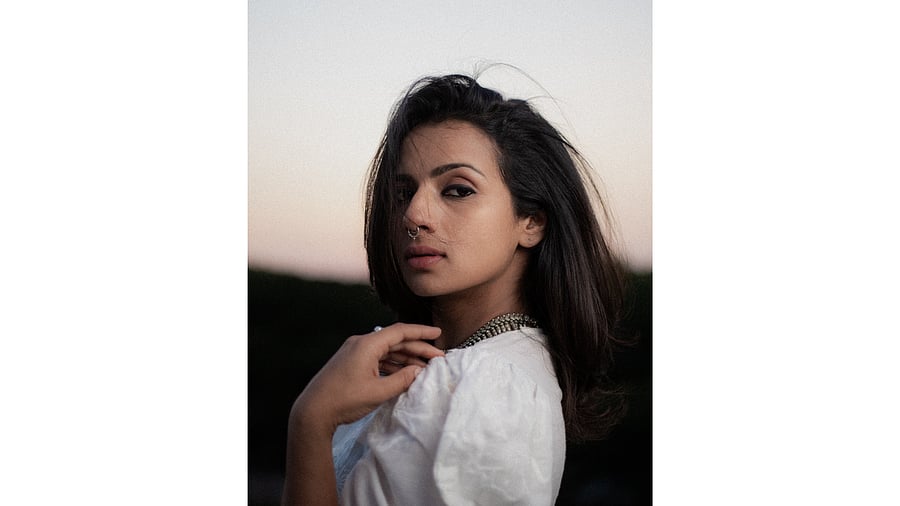
Sruthi Hariharan
Credit: Sharan G C
Sruthi Hariharan is back in a prominent role with the Tamil courtroom thriller, ‘Verdict’. It’s directed by Krishna Sankar. Sruthi shares the screen with Suhasini Maniratnam and Varalaxmi Sarathkumar. ‘The Verdict’ is set for release next week.
Set in the US, Sruthi plays Namrata who is the primary accused in the murder of a rich Indian-American lady. The courtroom drama follows the story of whether she’s guilty or not and who is the actual culprit.
In a conversation with Showtime, Sruthi talks about her character in the film and how the industry has changed post the #metoo movement.
Excerpts:
What kind of a role do you play in the film?
Namrata is a very simple character, a girl next door. She is somebody who moved to the US to study. She stayed there, fell in love and got married. Namrata was a very easy character to play. However the way the story moves forward puts her in interesting and emotional situations. For me as an actor, Namrata demanded a huge character arc.
Even at the script level, it was an interesting film because it’s set in the US, where the courtroom proceedings is very different from the Indian judicial system.
You’ve worked in the Tamil industry before, what was it like this time?
This time it was shot in the US. The team was very well organised. They had done their pre-production so well that we finished shooting the film in about 23 days. And that for me, in my 15-year career is quite a record. It was very different in terms of organisation and structure. Also, because US itself has a tone to it — it’s white everywhere. I remember the DOP not using any extra light. We did a guerilla form of shooting. The frames look beautiful without having to mask or add anything to make it look more aesthetic.
Did you enjoy travelling to the US?
It sometimes did feel like a paid holiday. But that's something that you always feel when you are shooting in foreign locations especially for a person like me who is a traveler at heart. I love travelling. So I was in my element and enjoyed every moment. It's also the first film that I went out after I had my daughter Janaki. It was the first time I was away from her for so long. I cherished that break as a mother and, as a woman even more.
How was it working with Suhasini?
She would come on set and surrender herself to the art. There was this part where both of us were in a scene and it was my close up shot. She had to just give an eye line or just be present, in case the camera captures her. But she went all out to perform the scene. I haven’t seen many actors do that. In fact even newcomers seldom do that. But if an actor performs irrespective of whether the camera is focused on them or not, the scene itself gets elevated, the co-actor’s performance gets elevated. I learned that from her. It was a great experience working with her.
What happened to your directorial project?
I'm still writing. It's taking a long time to write but I am also learning a lot of things. I am working on a few films behind the camera as preparation for my debut. I hope we can at least start pre-production by the end of this year.
Have you noticed any positive changes in the film industry after the #metoo movement?
Hundred percent! I think there is more fear and more check on people’s behaviour. I have heard people joke about the #meto movement by saying, ‘Hey be careful, they will put a #metoo on you’ — not specifically with me, but in general. I could be offended about it but the other thing is that they are keeping a check on their behaviour, which is the point of this whole thing. Where we are actually realigning or restructuring the way we think about behaving in work spaces like a film industry where interactions are seldom formal. I think there’s a huge change.